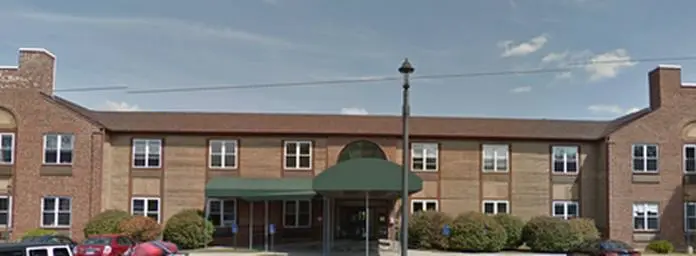I just comenced on 10/30/19 charmaine was my clinician,and she was wonderful in everyway possible!I put my all into getting the help i needed for the drugs and for my mental health,i can honestly say GINA,ANDREW,JANE,AND JOHN H, helped me tremendesly throught my time here ,i ...
About Stonington Institute
Their experienced clinicians provide around the clock inpatient supervision for clients detoxing from drugs and alcohol. They’re licensed to prescribe FDA approved medications to ease withdrawal symptoms, minimize drug cravings, and prevent potentially life threatening complications.
The partial hospitalization program at Stonington Institute is designed for those in the early stages of recovery or at heightened risk of relapse. The program delivers robust support, including post detox and crisis stabilization. You’ll participate in multiple therapy sessions daily, drawing on a range of psychotherapeutic practices, including motivational interviewing and behavioral therapy. Recovery focused education and life skills training, including courses in coping, self care, anger and stress management, and relapse prevention, are included. Complementary therapies, including creative arts and music therapy, are also available.
The outpatient programs encompass multiple levels of care to align with clients’ evolving needs, including outpatient programs and sober living or halfway houses. Their intensive programs are designed for those stepping down from immersive inpatient care, who are in early recovery, or who are at heightened risk of relapse. Traditional outpatient programs are less time intensive but still provide robust support, including multiple therapy and training sessions weekly, including evening, night, and weekend meetings for your convenience. Sober living and halfway houses are designed if you require a stable, structured, and substance free living environment to continue to work on recovery and prepare to reintegrate back home, work, family, and community life.
The aftercare services at Stonington Institute are designed to support sustained sobriety through a comprehensive continuum of care. Depending on your individual needs, services may include career counseling, peer coaching, alumni programs, social services and mental health care referrals, and transitional support into community based 12 Step programs.
Stonington Institute is accredited by the Joint Commission. They accept private insurance, self pay, military insurance, and Medicaid. They may be in-network with most commercial insurance providers. Need based financial aid is available. Verify your coverage with your individual provider as out of network benefits can vary.
Latest Reviews
Rehab Score
Gallery


Accepted Insurance
Other Forms of Payment
Private insurance refers to any kind of healthcare coverage that isn't from the state or federal government. This includes individual and family plans offered by an employer or purchased from the Insurance Marketplace. Every plan will have different requirements and out of pocket costs so be sure to get the full details before you start treatment.
Self-pay involves paying for treatment out of your own pocket. You can use savings or credit, get a personal loan, or receive help from family and friends to fund your treatment. If you don't have insurance or your insurance plan doesn't cover a specific program, self-pay can help ensure you still get the care you need.
Financial aid can take many forms. Centers may have grants or scholarships available to clients who meet eligibility requirements. Programs that receive SAMHSA grants may have financial aid available for those who need treatment as well. Grants and scholarships can help you pai for treatment without having to repay.
Medicare is a federal program that provides health insurance for those 65 and older. It also serves people under 65 with chronic and disabling health challenges. To use Medicare for addiction treatment you need to find a program that accepts Medicare and is in network with your plan. Out of pocket costs and preauthorization requirements vary, so always check with your provider.
Military members, veterans, and eligible dependents have access to specific insurance programs that help them get the care they need. TRICARE and VA insurance can help you access low cost or no cost addiction and mental health treatment. Programs that accept military insurance often have targeted treatment focused on the unique challenges military members, veterans, and their families face.
Medicaid is a state based program that helps lower-income individuals and families pay for healthcare. Medicaid covers addiction treatment so those enrolled can use their coverage to pay for rehab. When a program accepts Medicaid the client often pays very little or nothing out of their own pocket.
Addiction Treatments
Levels of Care
The outpatient programs, including PHP and IOP, provide flexible, structured treatment for substance use disorders. These services allow clients to maintain responsibilities while receiving evidence-based therapies such as cognitive-behavioral therapy and family counseling, supporting ongoing recovery.
Stonington Institute offers inpatient treatment through partial hospitalization and intensive outpatient programs, utilizing milieu therapy, cognitive-behavioral therapy, and holistic modalities like art therapy and yoga to support clients in achieving sobriety and mental wellness.
Their IOP provides evidence-based outpatient care with a focus on returning clients to sober environments. The program includes individual and group therapy, experiential learning, and recreational activities, making it ideal for those transitioning from residential or PHP treatment.
The Patriot Support Program integrates a core 12-Step model with evidence-based therapies, including group and individual counseling, to strengthen recovery resilience. It emphasizes family involvement and peer support, tailored for active duty military personnel near Groton.
Following detox, the facility offers ongoing outpatient and sober living programs, including relapse prevention and recovery coaching, to support sustained sobriety. Their comprehensive aftercare planning helps clients transition smoothly into long-term recovery.
The Inn at Trails Corner provides sober living accommodations as part of the recovery continuum. These supportive environments help clients maintain sobriety post-treatment, with access to outpatient services and community-based support near Groton.
This full-day outpatient program offers structured treatment with therapies like milieu treatment, cognitive-behavioral therapy, and family involvement. It’s ideal for clients transitioning from inpatient care or needing intensive outpatient support while maintaining daily responsibilities.
Their detox program features medically monitored protocols, 24/7 nursing staff, and on-call psychiatrists to ensure safe and effective withdrawal from substances like alcohol, opioids, and benzodiazepines, supporting clients’ initial recovery phase.
Treatments
Stonington Institute offers comprehensive alcoholism treatment that includes family therapy, educational lectures, and relapse prevention skills. Their program emphasizes understanding the physical, psychological, and spiritual effects of addiction, helping clients develop long-term recovery plans in a supportive environment near Groton, Connecticut.
The facility provides drug addiction treatment focusing on family dynamics, social skills development, and relapse prevention. Using evidence-based therapies like group and individual counseling, the program supports clients in achieving sustainable recovery from substance dependence.
Stonington Institute’s Partial Hospitalization Program offers specialized care for clients with co-occurring mental health and substance use disorders. Treatment includes medication management, coping skills development, and therapy modalities such as cognitive-behavioral therapy, tailored to support integrated recovery.
This program addresses co-occurring mental health and substance abuse issues through medication monitoring, therapy, and psycho-education. The PHP provides structured outpatient care, including family and individual therapy, to promote long-term mental health recovery.
Stonington Institute’s outpatient treatment for opioid addiction emphasizes evidence-based therapies like individual and group counseling, supporting patients in managing cravings and preventing relapse. The program’s continuum of care approach helps clients rebuild a healthy, sober lifestyle.
Programs
The adult outpatient program includes PHP, IOP, and sober living options, offering evidence-based therapies such as cognitive-behavioral therapy, art therapy, and vocational education to support adults in achieving lasting recovery.
The Patriot Support Program provides evidence-based therapies like CBT, CPT, and EMDR, focusing on resilience and healthy decision-making for active duty military personnel. It emphasizes family involvement and long-term mental health recovery near Groton’s military community.
Clinical Services
Cognitive Behavioral Therapy (CBT) is a therapy modality that focuses on the relationship between one's thoughts, feelings, and behaviors. It is used to establish and allow for healthy responses to thoughts and feelings (instead of unhealthy responses, like using drugs or alcohol). CBT has been proven effective for recovering addicts of all kinds, and is used to strengthen a patient's own self-awareness and ability to self-regulate. CBT allows individuals to monitor their own emotional state, become more adept at communicating with others, and manage stress without needing to engage in substance abuse.
Group therapy is any therapeutic work that happens in a group (not one-on-one). There are a number of different group therapy modalities, including support groups, experiential therapy, psycho-education, and more. Group therapy involves treatment as well as processing interaction between group members.
In individual therapy, a patient meets one-on-one with a trained psychologist or counselor. Therapy is a pivotal part of effective substance abuse treatment, as it often covers root causes of addiction, including challenges faced by the patient in their social, family, and work/school life.
Motivational Interviewing (MI) is a clinical approach to helping people with substance abuse issues and other conditions shift behavior in positive ways. It is more goal-oriented than traditional psychotherapy, as MI counselors directly attempt to get clients to consider making behavioral change (rather than wait for them to come to conclusions themselves). Its primary purpose is to resolve ambivalence and help clients become able to make healthy choices freely.
Trauma therapy addresses traumatic incidents from a client's past that are likely affecting their present-day experience. Trauma is often one of the primary triggers and potential causes of addiction, and can stem from child sexual abuse, domestic violence, having a parent with a mental illness, losing one or both parents at a young age, teenage or adult sexual assault, or any number of other factors. The purpose of trauma therapy is to allow a patient to process trauma and move through and past it, with the help of trained and compassionate mental health professionals.
Whether a marriage or other committed relationship, an intimate partnership is one of the most important aspects of a person's life. Drug and alcohol addiction affects both members of a couple in deep and meaningful ways, as does rehab and recovery. Couples therapy and other couples-focused treatment programs are significant parts of exploring triggers of addiction, as well as learning how to build healthy patterns to support ongoing sobriety.
Research clearly demonstrates that recovery is far more successful and sustainable when loved ones like family members participate in rehab and substance abuse treatment. Genetic factors may be at play when it comes to drug and alcohol addiction, as well as mental health issues. Family dynamics often play a critical role in addiction triggers, and if properly educated, family members can be a strong source of support when it comes to rehabilitation.
Life skills trainings involve all the skills a person must have in order to function successfully in the world. These include time management, career guidance, money management, and effective communication. Truly successful addiction recovery is based on the ability to not only live substance-free, but to thrive. Life skills teaches the practical necessities of functioning in society, which sets clients up for success in life, and therefore sobriety.
Amenities
-
Residential Setting
-
Private Rooms
Staff & Accreditations
Staff

William A. Aniskovich, MA, JD
CEO

Rowan-Kelly, MD, FASAM
Chief Medical Officer & Director of Addiction Medicine

Andrea Keeney
Director of Admissions

Donna McLeod, LMHC, LCDP
Director of Performance Improvement & Risk Manager
Accreditations

State Licenses are permits issued by government agencies that allow rehab organizations to conduct business legally within a certain geographical area. Typically, the kind of program a rehab facility offers, along with its physical location, determines which licenses are required to operate legally.
State License: Connecticut

The Joint Commission, formerly known as JCAHO, is a nonprofit organization that accredits rehab organizations and programs. Founded in 1951, the Joint Commision's mission is to improve the quality of patient care and demonstrating the quality of patient care.
Joint Commission Accreditation: Yes
Accreditation Number: 936
Contact Information
618 Poquonnock Road
Groton, CT 06340






